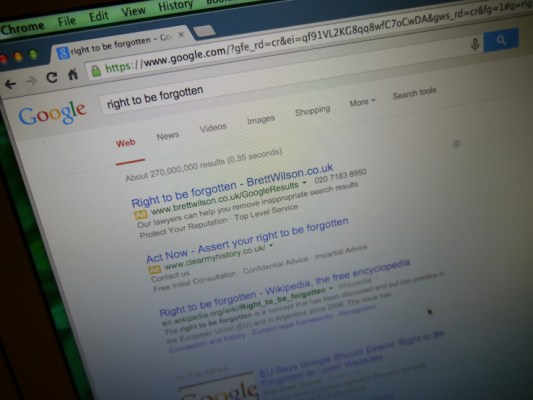As promised, Google today announced that it is making a number of changes to how it handles links it has delisted under Europe’s ‘right to be forgotten‘ regulations. Instead of simply delisting links from the various regional versions of its search engine, it will now use geolocation to remove these links from all searches that come from a given region.
To be delisted according to the European ruling, information must be “inadequate, irrelevant, no longer relevant or excessive, and not in the public interest.”
Until now, though, you could still find these delisted sites by simply using google.com instead of google.co.uk or google.fr. The European courts were obviously aware of this loophole, but Google resisted making these changes.
Starting next week, though, Google will use a searcher’s IP address and other data to restrict access to these delisted URLs based purely on where there are and irrespective of what Google Search domain they are using.
“So for example, let’s say we delist a URL as a result of a request from John Smith in the United Kingdom,” Google’s global privacy counsel Peter Fleischer writes today. “Users in the UK would not see the URL in search results for queries containing [john smith] when searching on any Google Search domain, including google.com. Users outside of the UK could see the URL in search results when they search for [john smith] on any non-European Google Search domain.”
There are obviously still ways to fool Google’s geolocation techniques here, too, as TechCrunch’s Natasha Lomas pointed out last month, but for the most part, these aren’t quite as trivial as simply going to google.com.
